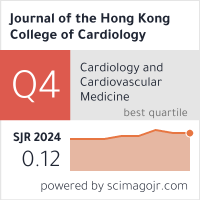Correlation of Epicardial Adipose Tissue with Body Composition, Lipids and C-reactive Protein in Asian-Indians
Abstract
Background: Echocardiographic epicardial adipose tissue (EEAT) is an indicator of visceral fat in the body and is also well known as a risk factor of cardiovascular diseases. EEAT thickness (EEATT) and its association with risk of diseases is influenced by age, gender and ethnicity. There is limited literature on EEATT values and associated risk factors in Asian-Indian population. The objective of the study was to study the correlation of EEATT with body fat percentage, visceral fat levels, lipid profile and fasting blood sugar levels in Asian-Indian population. Methodology: 195 overweight Asian-Indian individuals with body mass index between 25 to 35 and with no known medical conditions voluntarily agreed to participate in the study. The preliminary screening of the participants in this cross-sectional study included body composition assessment and blood test. All the participants also underwent 2D Echocardiography to measure EEATT in parasternal view. The EEATT values were correlated with body weight, body mass index, visceral fat levels, body fat percentage, waist circumference, fasting blood sugar values and blood lipids. The results were analysed using Descriptive statistics and Pearson's correlation test. Results: EEATT showed a positive correlation with body weight (r=0.47, p= < 0.005), body mass index (r=0.52, p= < 0.005), waist circumference(r=0.72, p= < 0.005), total body fat percentage (r=0.46, p= < 0.005), visceral fat levels (r=0.77, p= < 0.005), fasting blood sugar levels (r=0.35, p= < 0.005), total cholesterol(r=0.29, p= < 0.005), Low Density Lipoprotein Cholesterol (r=0.33, p= < 0.005), Triglycerides (r=0.31, p= < 0.005) and high sensitive C-reactive protein (r=0.47, p= < 0.005) < /p> < p> Conclusion: Epicardial adipose tissue thickness measured by echocardiography, a reliable indicator of visceral fat and a marker of cardiovascular diseases showed good correlation with indicators of abdominal adiposity and visceral fat measured by Bio-impedance analysis in Asian- Indian population. The significant association with metabolic parameters and C-reactive protein indicate that epicardial adipose tissue is a reliable marker for cardiovascular diseases in overweight Asian-Indian population.
Recommended Citation
Kalyana B Chakravarthy, Arun G Maiya, Padma R Kumar, Krishnanand Nayak, Nafeez Syed, Correlation of Epicardial Adipose Tissue with Body Composition, Lipids and C-reactive Protein in Asian-Indians Journal of the Hong Kong College of Cardiology 2018;26(1) https://doi.org/10.55503/2790-6744.1010
Creative Commons License

This work is licensed under a Creative Commons Attribution-Noncommercial-No Derivative Works 4.0 License.



